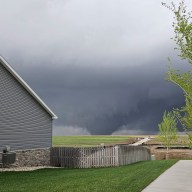TORONTO – The decision about whether to undertake a mass vaccination of Canadians against swine flu has been all but taken, the country’s chief public health officer said Thursday.
Dr. David Butler-Jones said given the behaviour of the new H1N1 virus and the risk it poses, there is little chance Canada wouldn’t push ahead with a vaccination program in the fall.
“At this point I cannot imagine not immunizing, given the nature of this disease, its variability and its risk to people, both in terms of illness but also serious illness and death,” Butler-Jones said in an interview with The Canadian Press.
“It is a new virus, so most of us have no or very little immunity against it. And so immunization is our best protection.”
As of Wednesday the World Health Organization reported nearly 56,000 people around the world have had laboratory confirmed cases of swine flu and 238 people have died.
In Canada, more than 6,700 confirmed cases have been reported and 22 deaths have been linked to the disease. The most recent, announced Thursday by officials in Manitoba, was a child under 18 who was said to have had some medical conditions.
A number of countries have placed orders with flu vaccine manufacturers for swine flu vaccine, which will take several months to produce.
But some – like the United States, where memories of the 1976 swine flu incident are still strong – have said they may delay making a decision about whether to use the vaccine until closer to the time when products have been tested and approved by regulatory agencies.
In early 1976 a swine flu virus infected a number of recruits at Fort Dix, Md., and the world thought a pandemic was in the making. Vaccine was made and a mass vaccination program was begun in the U.S. But the program was halted because of a higher-than-normal rate of cases of Guillain Barre syndrome in people who had received the shots.
It has never been determined why there was an elevated rate of the paralytic condition – which normally revolves itself over time – in people who received the vaccine.
Butler-Jones said safety trials of the new H1N1 vaccine will have to be conducted. And Canada’s vaccine regulator, a branch of Health Canada, will have to study data from the trials to make sure the vaccine is safe and induces an immune response.
“We need to be assured that it’s safe and the benefits are there,” he said. “It’s one step at a time.”
Canada was the first country in the world to sign a pandemic flu vaccine contract. In 2001 it entered into a 10-year agreement with Shire Biologics – later bought by ID Biomedical, which was later bought by vaccine giant GlaxoSmithKline – that required the manufacturer to be constantly ready to begin production of enough vaccine to protect every Canadian who wants to be vaccinated.
The contract guarantees Canada access to the first vaccine that will be produced at GSK’s manufacturing facility in Ste-Foy, Que.
Having domestic capacity to produce pandemic vaccine has long been considered a key to ensuring access. Pandemic planners have recognized that if a pandemic began to cause severe disease and a crisis situation arose, countries with vaccine manufacturing facilities within their borders might refuse to allow vaccine to be exported until domestic needs had been met.
Butler-Jones said there are decisions still to be made, including whether the country ought to offer the vaccine to everyone and in what order groups like children, adults and seniors should be vaccinated.
For instance, it currently appears that people over the age of 60 are at less risk of catching the virus and perhaps of developing severe disease if they do. One option might be to forego vaccinating that group.
“There may be some questions about how far you go in the population to actually address this,” Butler-Jones said, though he acknowledged all the information needed to make good decisions may not be available when those decisions need to be made.
“As we’ve been doing, I expect we will likely be hedging our bets,” he said.
Canada, like the rest of the world, will be watching what happens in the Southern Hemisphere during its winter, he said.
Based on the pattern of disease being seen, a group of experts will advise the council of federal, provincial and territorial ministers of health on a priority schedule for vaccine administration. Those recommendations will be made in the early fall, Butler-Jones said.
He said Canada is on target to start vaccinating against swine flu in late October.
–
Follow Canadian Press Medical Writer Helen Branswell’s flu updates on Twitter at CP-Branswell
















